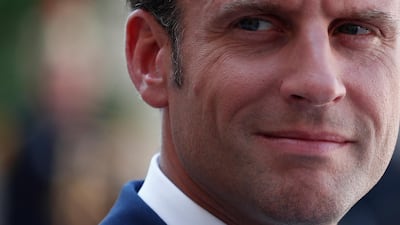French economic growth unexpectedly slowed, adding to risks for a eurozone already shaken by a manufacturing slump and frailties in its largest economy, Germany.
France was expected to show greater resilience as it’s less exposed to the slowdown in international goods trade and more reliant on domestic demand that President Emmanuel Macron tried to turbo-charge with a €17 billion (Dh69.53bn) stimulus. Despite the tax cuts, announced in response to the Yellow Vests protests, consumer spending growth slowed.
The second-quarter expansion of just 0.2 per cent - below economists’ 0.3 per cent estimate - is another blow for policymakers already fighting fires in other parts of the eurozone. European Central Bank chief Mario Draghi last week warned the outlook is getting “worse and worse” and implored governments to give more fiscal support as ECB staff ready another monetary boost for September.
The French figures may be just the first disappointment in a gloomy week for the European economy. Data on Wednesday are expected to show growth in the eurozone slowed to 0.2 per cent in the second quarter from 0.4 per cent as trade tensions stymied demand and manufacturers struggled to adapt. The German economy probably contracted, according to the Bundesbank.
French growth was driven exclusively by domestic demand, with company investment and public spending accelerating. Net trade didn’t make a contribution, while inventories weighed on output.
Even if manufacturing makes up a smaller share of the French economy, it deteriorated rapidly in June. Production declined particularly sharply in the automotive, plastics and electronics sectors.
Car makers publishing their second-quarter results have echoed those warnings. Renault last week reduced its sales outlook for 2019 as it expects a contraction in the global auto market, and car-part makers that supply the sector are already beginning to adjust to difficulties with job cuts and cost-cutting plans.
“We’re going for flatness, flat markets for the years ahead,” Plastic Omnium chief executive Laurent Burelle said. “ We have to be very watchful and we have to be extremely responsive and we have to be very agile.”

